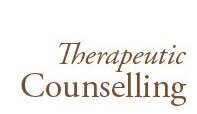“My mission in life is not merely to survive, but to thrive; and to do so with some passion, some compassion, some humour and some style.”
Maya Angelou
Photo by Mike Chai from Pexels
Traumatic stress related disorders
Emotional and physical trauma can cause stress disorders.
Victims of both long-term domestic abuse (physical and psychological) and sexual abuse often fall into the ‘Complex’ category.
Trauma can also trigger depression and anxiety. And in some cases trigger dysfunctional behaviours. Both Talking Therapies and CBT techniques have proven track records benefitting clients with these difficulties.
Acute Stress Disorder (ASD).
According to Diagnostic and Statistical Manual of Mental Disorders (DSM-V) after a traumatic event, a large proportion of the general population will return naturally to their equilibrium between three days - four weeks, this is called Acute Stress Disorder (ASD).
Post-traumatic stress disorder (PTSD) .
However, if the symptoms continue, and the distress is caused by a singular event like a road traffic accident, witnessing a brutal attack or experiencing a traumatic event, it is described as Post-traumatic stress disorder (PTSD).
Complex PTSD.
If there is a history of chronic traumatisation - a series of events over an extended period of time “traumatic events, violence, neglect or abuse”, then it is re-categorised to Complex PTSD. Complex PTSD may develop years after the event (NHS, 2018).
Classically, traumatic stress disorders are linked to both serving and retired first responders, the military, those affected by natural disasters, rape, and abuse.
Victims of both long-term domestic and sexual abuse often fall into this ‘complex’ category. Abuse can be both Physical with evidenced brutality without any credible explanation, and Psychological which includes verbal abuse, isolation tactics, coercive controlling behaviours (for example: limited money access, cut off from friends/relatives, threat: left in a permanent state of fear, and disassociation). Anybody, from any strata of society can fall prey to narcissistic behaviour resulting in dysfunctional relationships.
There is also a condition called Secondary or Vicarious PTSD, when a carer or the family of a person with PTSD experiences severe anxiety. Their exposure to verbal or physical violence - never knowing when the next trigger will result in an outburst by the PTSD sufferer, not knowing how big or small that reaction may be - causing fear/fight/flight mode: heightened cortisol, increased hormone levels, which over time can cause cognitive dysfunction (Datta, S. 2010).
All of these scenarios can also cause depression and anxiety. And in some cases trigger dysfunctional behaviours as coping mechanisms like obsessive compulsive behaviours commonly called OCD, phobias and eating disorders. These can occur alongside a heightened sense of shame and guilt (“it must have been my fault”), emotional control difficulties like anger, loss of focus, memory gaps or flashbacks, an altered sense of the reality (disassociation), physical manifestations: head, chest, stomach pains, even self-imposed isolation causing socialisation difficulties, self-destructive extreme behaviours and suicide ideation. Both Talking Therapies and CBT techniques have proven track records benefitting clients with these symptoms (NHS, 2018). Please contact me to book an appointment or for further details.
If you are in distress and require immediate psychological support contact the Samaritans free from any phone 116 123.

